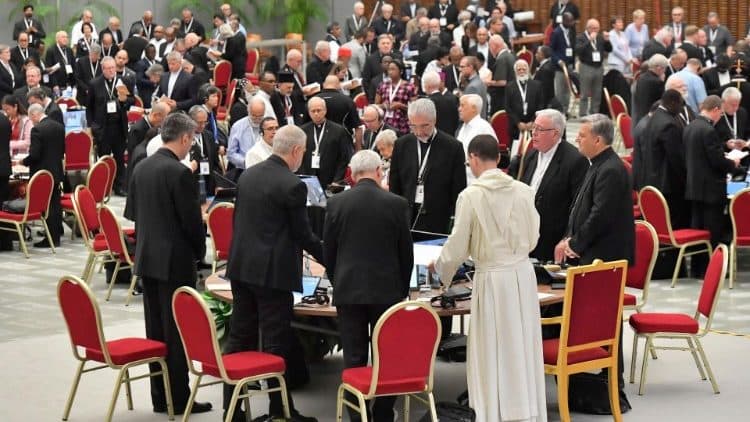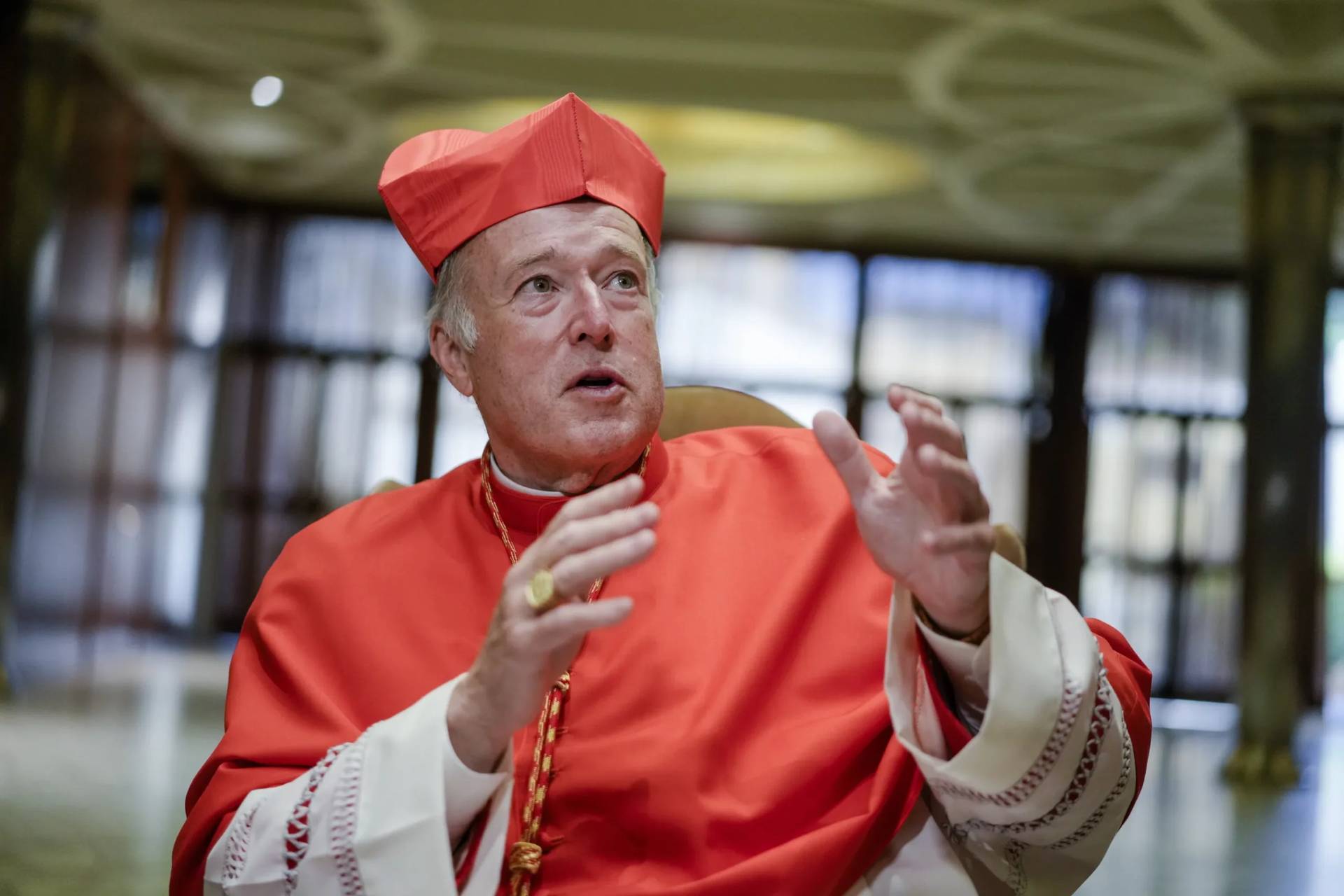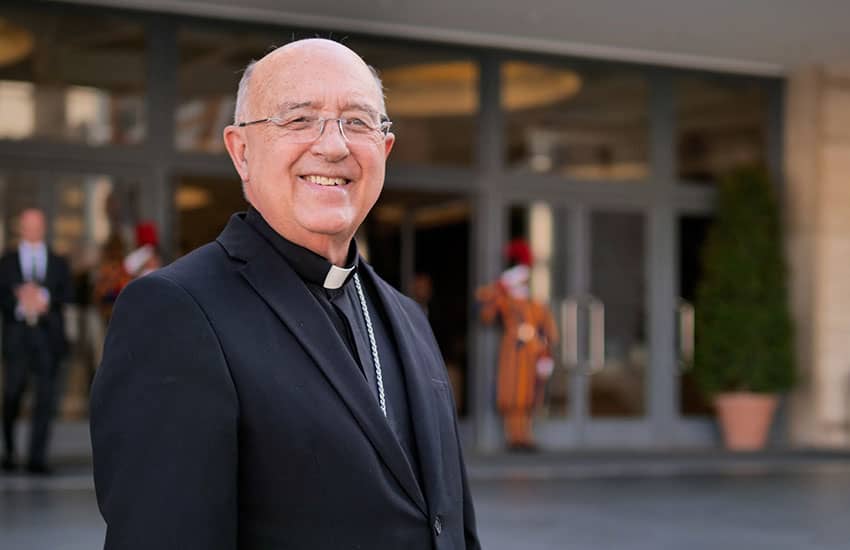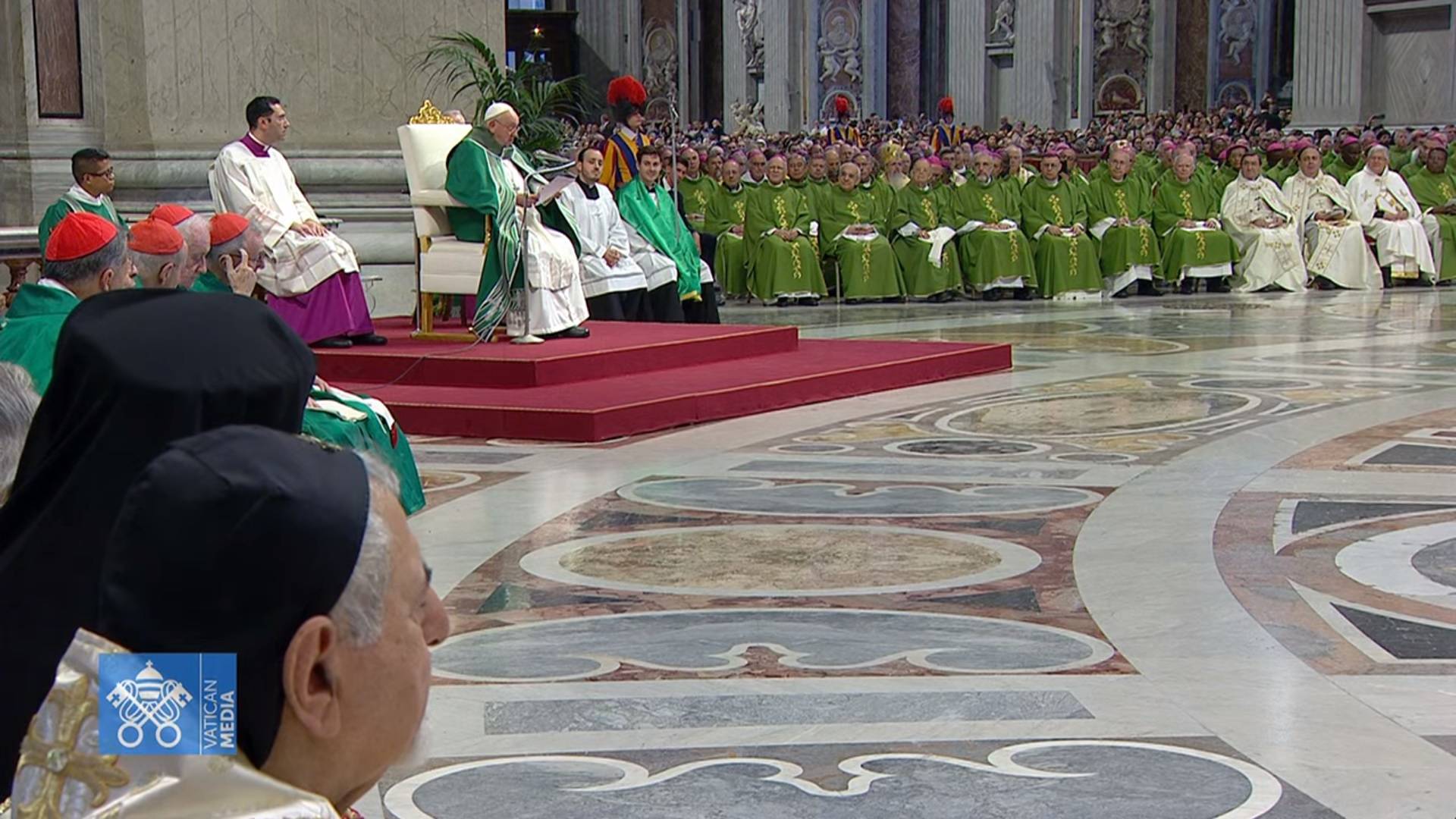ROME – A final synthesis produced by Pope Francis’s month-long Synod of Bishops on Synodality offered no clear or concrete proposals on hot-button issues, which one Vatican official explained Saturday night as the product of a search for an “ample and convincing consensus.”
“Ecclesial discernment, which is based on mutual listening to understand where the spirit is leading the Church, is based on the criterion of consensus,” said Maltese Cardinal Mario Grech, secretary general of the Synod of Bishops, who put the word “consensus” in all-caps to underscore his point.
As a result, the synthesis did not express positions on issues such as women’s priestly ordination, the female diaconate, or the welcome of the LGBTQ+ community, all of which were topics that arose during the synod discussion. Rather, the text spoke in broad strokes of the need to take further action in promoting women in leadership and in welcoming those who feel marginalized, but offering no specific proposals.
The 42-page text was divided into three parts, “the face of the synodal Church,” “all disciples, all missionaries,” and “weave bonds, build community,” followed by a final section on “to continue the path.”
Each section was divided into points of convergence, issues that need to be addressed, and proposals going forward.
On women, the document said, “it is urgent to guarantee that women can participate in decision-making processes and take on roles of responsibility in pastoral care and ministry.”
Noting that Pope Francis has named several women to high-profile positions within the Vatican, the document said “the same should happen at other levels of the life of the Church,” adding that “canon law must be adapted accordingly,” but providing no specifics on which changes might be necessary.
On the issue of women deacons, the document offered no clear position or proposal, but simply stated that pastoral and theological research on the female diaconate “should continue,” drawing on research already done by the two commissions that the pope has established to study the issue.
The document said the results of any further research on the topic ought to be presented during next year’s final synod gathering.
It was noted that attitudes of clericalism, “chauvinism,” and the abuse of power damage the Church’s witness and communion, and the impact of sexual and financial scandals was also addressed.
The document underlined the need to avoid speaking about women “as an issue or a problem” to be solved, but rather, to promote a Church “in which men and women dialogue with the aim of better understanding the depth of God’s plan, in which they appear together as protagonists, without subordination, exclusion, or competition.”
Exploitation of nuns was also addressed, with the text saying there is a need to address the issue of women religious who are often considered to be cheap workers and are hired with little or no pay. A call was also made to include more women in formation and theological studies programs for priests.
Notably, despite repeated references to the LGBTQ+ community and the need to find ways to be more welcoming of those with same-sex attraction, the document made no mention at all of the terms, “LGBTQ+,” “homosexuality,” or “same-sex.”
While the issue of blessings for same-sex couples was a major source of debate prior to the synod’s opening, the word “blessing” did not appear in the document.
The issue was addressed in veiled language referring to issues “such as those relating to gender identity and sexual orientation, the end of life, difficult marital situations,” and “ethical problems connected to artificial intelligence.”
These issues “are controversial in society, but also in the Church, because they pose new questions,” the document said, saying current “anthropological categories” for these issues “are not sufficient to capture the complexity of the elements that emerge from experience or scientific knowledge and require refinement or study.”
The text underlined the importance of dedicating the necessary time and energy to reflect on these issues, “without giving in to simplifying judgements that hurt people and the Body of the Church.”
“Even where further clarifications are necessary, the behavior of Jesus, assimilated in prayer and conversion of heart, shows us the path to follow,” it said.
In terms of those who have felt marginalized in the Church, a category which in synod discussion and in the working document included the LGBTQ+ community, the document said that listening to these voices “requires unconditional acceptance.”
However, this acceptance “does not mean abdicating clarity in presenting the Gospel message of salvation, nor endorsing any opinion or position,” it said, noting that Jesus in scripture “opened new horizons to those he listened to without conditions and we are called to do the same.”
New Ways Ministry, a US-based advocacy group for LGBTQ+ Catholics, issued a statement Saturday night saying the report “disappoints by simply reaffirming the hierarchy’s status quo.”
On the question of priestly celibacy, the document noted that different opinions were expressed on the issue, and that “everyone appreciates (priestly celibacy)’s value full of prophecy and the witness of conformity to Christ.”
“Some ask whether its theological convenience with the presbyteral ministry must necessarily translate into a disciplinary obligation in the Latin Church, especially where the ecclesial and cultural contexts make it more difficult,” the text said, saying, “This is not a new topic, which requires further consideration.”
Formally opened by Pope Francis in October 2021, the Synod of Bishops on Synodality is officially titled, “For a Synodal Church: Communion, Participation, Mission,” and is a multi-stage process that will culminate with a second Rome-based gathering in October 2024.
After an initial consultation with laypeople at the diocesan level, reports summarizing the conclusions were sent to national bishops’ conferences. Those reports served as the basis for discussion at the second, continental stage of the process.
The continental stage concluded earlier this year, and reports from each of the seven continental assemblies were used as a basis to draft the official working document, called the Istrumentum Laboris, for this October’s Rome discussion at the universal level.
Women’s priestly ordination, the female diaconate, and blessings for same-sex couples were among the most contentious issues discussed, with some participants describing the engagement of these issues as “emotional,” and others claiming they were a “western obsession.”
Prior to the synod, several conservative prelates warned the process could become “schismatic” over its engagement with these issues.
Ahead of the synod’s opening, Francis published responses to a set of dubia, or doubts, posed by five conservative cardinals about these issues in which he reaffirmed the ban on women’s priestly ordination while saying it could be studied, and opened a cautious door to the blessing of same-sex unions on a case-by-case basis, with certain caveats.
Following this month’s synod, which, for the first time, featured woman and laypeople generally as full voting members, the process will conclude with a second Rome gathering in October 2024.
Follow Elise Ann Allen on X: @eliseannallen















